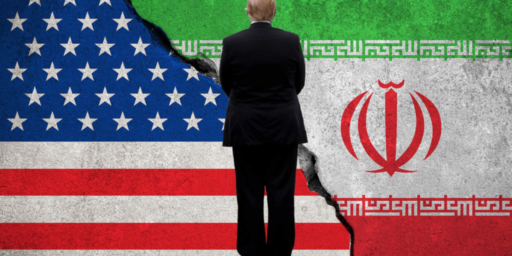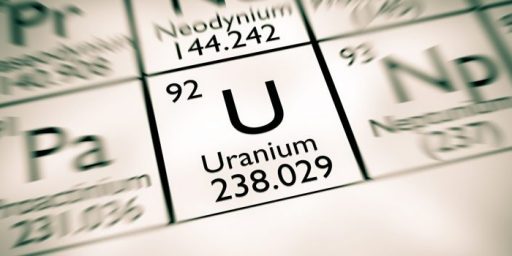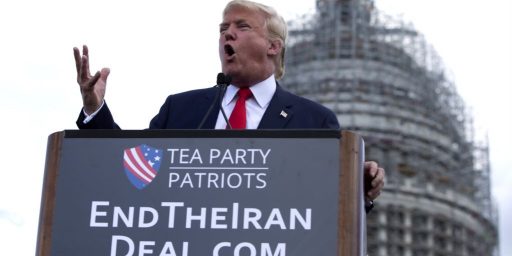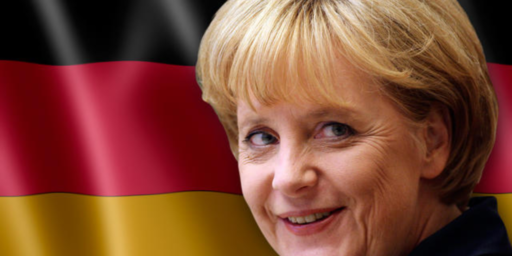Haggling With the Iranians
In her address yesterday to a joint session of Congress German Chancellor Angela Merkel reiterated her country’s insistence that Iran suspend its uranium enrichment program in compliance with multiple United Nations Security Council resolutions:
Angela Merkel, the German chancellor, yesterday delivered a stern warning to Iran’s hard-line leader amid signs that the west’s patience with Tehran’s prevarication on its nuclear programme was running out.
In a speech to the joint houses of the US Congress, the first by a German chancellor in more than half a century, Mrs Merkel aligned Germany closely with the US drive to tackle a range of threats such as global warming, international terrorism and climate change.
Her comments on Iran signalled Germany’s determination to press ahead with a new raft of sanctions against the Tehran regime if, as is now expected, it fails to enter into negotiations on its nuclear programme.
“Zero tolerance needs to be shown when there is a risk of weapons of mass destruction falling, for example, into the hands of Iran and threatening our security,” Mrs Merkel told Congress. “Iran needs to be aware of this, Iran knows our offer but Iran also knows where we draw a line.”
The editors of the Chicago Tribune have encouraged the United States government to support a new round of sanctions against Iran, especially a ban on exporting gasoline to Iran:
The U.S. is reported to be forming a set of much harsher sanctions against Iran, targeting the country’s energy, transportation and financial industries. Good. But Iran is already under several sets of sanctions by the U.S. and U.N. Security Council. These have pinched, but not enough to stop Iran’s nuclear program.
The best option now is a ban on gasoline imports. Even though it produces crude oil, Iran must buy about 40 percent of its gasoline. Any jolt to that supply would have an immediate effect on the streets of Tehran and on every Iranian motorist.
The Iranian people may blame their government. Or they may blame the U.S. and its allies. Either way, Iran’s leaders, already loathed at home, will come under immense new pressure to yield on their nuclear ambitions.
The U.S. and its European allies can’t make a gas embargo stick without help from Russia and China. They’re reluctant. But now’s the time to make the case that an embargo is a better strategy than a military strike on Tehran.
Most of all the members of the Security Council must decide whether their resolutions are proposals in a negotiation or not. If they are not, Iran should not be allowed to to turn them into a negotiation. If they are, clearly the UNSC will need to up the ante.
If it were me, in exchange for 10% of Iran’s enriched uranium I would lift 10% of the sanctions I’d impose on Iran which would include a ban on gasoline exports and a ban on Iranian financial transactions in international banks, in exchange for 20% of Iran’s enriched uranium, I’d lift 20%, and so on. But that’s just me.
However, we need to ask the Russians and the Chinese the question outright: are the resolutions for which they’ve voted merely bargaining points in a negotiation or not?






The old Soviet Union would have backed us against a nuclear Iran. They would have the seen the potential threat to their own security. The new Russia has a very hard time seeing past profits.
I can almost understand China. They’re further away geographically, less historically tied to the region, etc… We’re asking them to step up, start behaving like a status quo power at a point when they still see themselves as victimized revolutionaries. And there too there’s the money. Iran is a very juicy target for investment and influence.